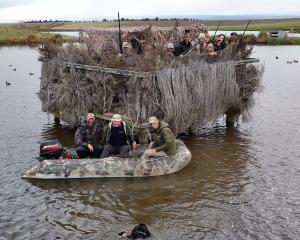
At Beef and Lamb New Zealand's FarmSmart conference in Christchurch last month, Mr Bielski talked about how he discovered regenerative farming after attending a seminar by Australian ecologist Dr Christine Jones two years ago.
''I sat in the front row and I interrogated Christine all day - 'What about P levels, what about this, what about that and where is your science?'
''At the end of it, after she had given her presentation, I said to myself she might have a point.''
He spent the rest of the winter searching the internet to learn as much as he could about regenerative farming and soon realised the way he was farming was unsustainable.
''When people say 'Where's the science?' I just say go and look for it yourself. If it's been done, it's there.''
''After Christine I realised I had a whole lot more questions. As farmers, we replace the nutrients that have gone off our farm with fertiliser.
''But then I thought, where is our phosphate and potassium coming from? A mine - and is that replaced? Is that sustainable?''
Mr Bielski and his wife Amy farm 280ha between Balclutha and Clinton in an equity partnership, farming 2300 breeding ewes and 200 trading cattle.
They used to do some cropping as well, but decided their farm would be more sustainable if they focused on sheep and beef through regenerative farming.
Instead of planting a single winter crop or pastures, he now planted a variety of seeds in the one paddock to produce a diverse forage.
He said the greater variety of crops produced more root mass which increased nutrient-holding and water-holding capacity.
The biggest problem was now producing too much feed, so he was looking to increase his stocking rates.
Mr Bielski said converting to regenerative farming was ''a long journey'' and required perseverance.
''The way we are farming is not sustainable, so we need to look at other ways of doing things.
''I thought I was sustainably running my farm, but after two years of research I realised I wasn't.
''After two years of following regenerative principles I'm not sustainable yet, but I'm heading in the right direction.''
-By David Hill















